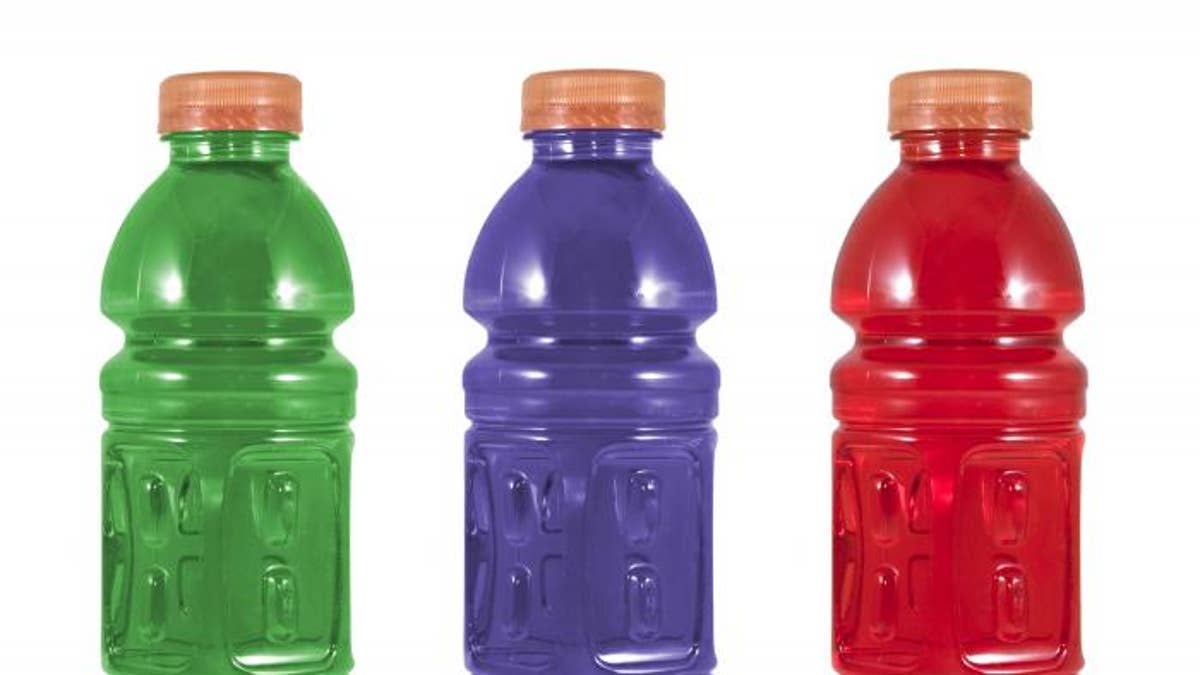
Work out hard — especially on a hot summer day — and you could end up feeling exhausted, sore and even a bit queasy.
That’s because intense sweaty physical activity subjects our body to a lot of stress — taxing our muscles and depleting water and nutrients as we burn energy. Recovery requires both rehydration and replenishment of lost nutrients, and there are a host of sports performance drinks out there that claim to do exactly that. So do they? To some degree, yes, but do you actually need them? Not necessarily.
Electrolyte Drinks
The electrolytes sodium, magnesium, calcium, potassium, and phosphorus are essential for regulating bodily fluids. When you sweat profusely your electrolyte levels drop, but that does not mean you need rehydrate with a sports drink after every workout. If you eat a healthy, high protein, high fiber diet, your body should have more than enough electrolytes to recover from exercise. And a recent study published in the Journal of Nutrition concluded that replenishing minerals isn’t necessary for workouts lasting under an hour. So while there’s nothing wrong with downing sports drinks, the truth is you can probably rehydrate just fine sipping plain ordinary water.
What you need to know about sports drinks is that they aren’t calorie-free like water. An 8 oz. serving of Gatorade or Powerade for example has 50 calories, 14 grams of sugar, 14 grams of carbohydrates, and about 110 mg of sodium. You can cut the calories in half by going with Gatorade’s G Natural or G2 Natural, which contain sea salt, real fruit flavors, and natural sweeteners. Better still for anyone who is weight-conscious are bottled waters like Smart Water and Vitamin Water Zero, that are calorie-free and help boost electrolytes just like other sports drinks.
Got Milk?
Lately, many an athlete has taken to drinking chocolate milk after their workout because it helps rehydrate their body while fortifying it with a healthy combo of carbohydrates and protein — plus a welcome mix of vitamins and minerals. The carbs in cow milk digest quickly providing a welcome energy boost while milk’s proteins has amino acids that help repair muscles and ease soreness. One cup of regular chocolate milk from a carton has about 170 calories, 6 grams of fat and 24 grams of sugar though. Go lighter with a product such as Muscle Milk Light, which has only 100 calories, 4 grams of carbohydrates, and an impressive 15 grams of protein!
Go Loco for Coco
If milk or fruity drinks aren’t really your post-workout thing, try coconut water, which contains vitamins and minerals that are necessary for hydration. A tall 14 oz. serving of ZICO coconut water for example has 70 calories, 16g carbs, 15 g of it from sugar, and contains loads of electrolytes – including 610 mg of potassium, which is equivalent to an entire banana! Coconut water is a great choice for high-performance, high endurance-athletes who really pour it on when they exercise and lose a lot of electrolytes through prolonged sweating.
